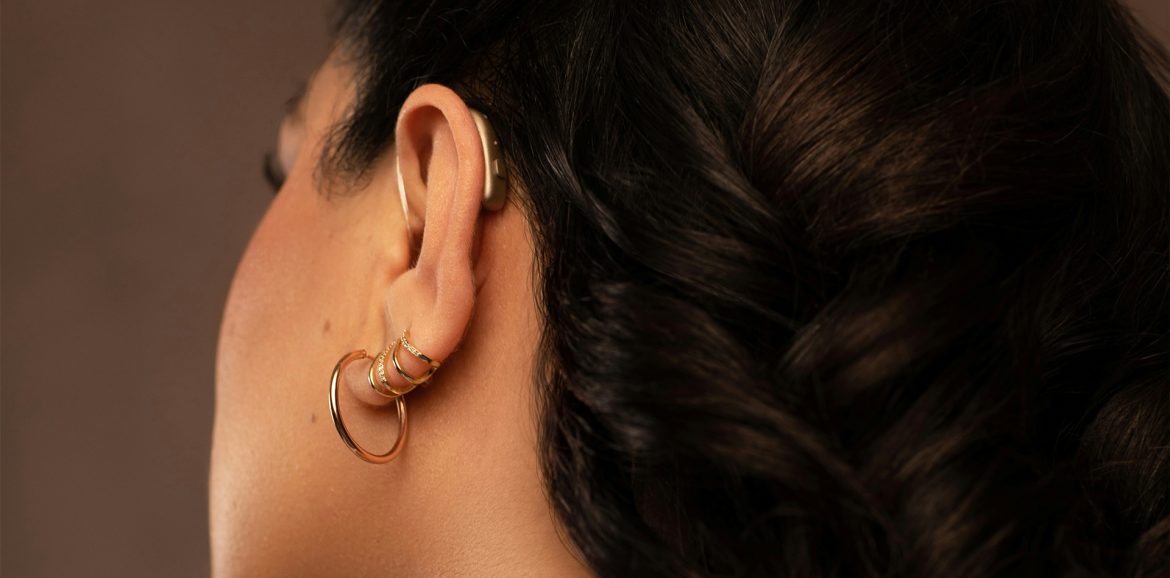The moment when you first consider a hearing aid is often fraught. Not necessarily because of the device itself – because these days they are smarter, smaller and more comfortable than ever – but because of what its symbol can mean. To yourself, to those around you. “Is it really here yet?” “What will others think?” Or simply, “It makes me uncomfortable.”
In short: shame. And while it’s a perfectly human reaction, it’s mostly an unnecessary one. In this blog, we’ll discuss where that shame comes from, why it’s time to let it go, and how to live confidently with a hearing aid – if you want or need it.
Why are people ashamed of hearing aids?
There are many reasons why people find it difficult to wear hearing aids. Often it revolves around a combination of image, self-image and social expectations. Here are a few common thoughts:
1. “Then I look old.”
Perhaps the most commonly heard reason. Hearing aids are (wrongly) associated with old age. But hearing loss occurs at all ages – due to heredity, noise, disease or simply bad luck. And besides, what’s wrong with getting older?
2. “Others see it right away.”
Some people worry that it will stand out or that people will suddenly approach them “differently. But in reality, many modern devices are barely noticeable. More importantly, people notice more quickly that you don’t understand them properly than if you’re wearing a subtle device.
3. “I can still hear reasonably well, right?”
Often there is doubt or denial. People adapt, lip reading, nodding, avoiding busy conversations. But that takes a lot of energy – and it affects how you communicate and socialize.
4. “I don’t want to be troublesome.”
You hear this surprisingly often. People don’t want to ask for help, don’t want to cause a “fuss,” don’t want to be an exception. Whereas hearing loss is exactly what calls for a little extra understanding – and that’s nothing to be ashamed of.
Shame is limiting
The problem with shame is that it stops you from doing something that would actually help you. And that has consequences:
- You put off wearing a hearing aid, causing your hearing and communication to deteriorate.
- You miss conversations or are more likely to drop out in social situations.
- You avoid crowded environments or conversations with background noise.
- Your world gets smaller – literally and figuratively.
That’s a shame. Because hearing loss doesn’t have to be a hindrance if you recognize it in time and do something about it.
A hearing aid is not a weakness, but a tool
Consider glasses. No one is surprised by that. In fact, some people wear glasses with no prescription – purely as a fashion accessory. So why should a hearing aid be any different?
A hearing aid:
- Gives you back your freedom. You have to put less effort into following conversations.
- Improves your relationships. You are really present in conversations again.
- Reduces listening fatigue. Your brain does not need to compensate continuously.
- Gives self-confidence. You actively choose to hear better, rather than wait and see.
And that is powerful, not a weakness.
Technology is further along than you think
Hearing aids have evolved tremendously in recent years. Gone are the big, beige devices from grandma’s time. Modern hearing aids are:
- Small and subtle. Some are almost invisible in or behind your ear.
- Smart. They automatically adapt to your surroundings, filter background noise, connect to your phone or TV.
- Stylish. Available in different colors and shapes.
- Comfortable. Lightweight, barely felt, sometimes even waterproof.
Some people find their hearing aid so convenient that they use it as a bluetooth earpiece to make calls or listen to music – just like that, without anyone noticing.
Recognition is the first step
Many people walk around with (unconscious) hearing loss for years. They notice it by the frequent “What are you saying?”, turning up the TV louder and louder, or the fatigue after a day full of conversations.
Recognizing hearing loss is not a weakness, but a step toward better contact with the world around you. A hearing aid is simply an aid to that – just as glasses or a walker can be.
How do you let go of shame?
It’s easy to say, “just let go.” But feelings of shame sometimes take some time – and practice. Here are some tools to make it easier:
1. Talk about it
Tell a few people you have trouble hearing. You’ll find that most people respond with understanding. And you may hear from others that they too wear earplugs or are considering hearing aids.
2. Start trying
Request a trial period from your hearing care professional. That way you can get used to the feeling and experience the difference in your daily life – without taking a big step right away.
3. Be open in social situations
Just say, “I don’t hear everything well, so please talk more clearly.” This is much less uncomfortable than pretending to follow everything.
4. Embrace it with humor
A light-hearted comment such as “Let me just put in my high-tech earpiece” can break the ice. Self-mockery is often the best way to put discomfort into perspective.
5. Put your own well-being first
It’s not about what others may think. It’s about your quality of life. And being able to hear well is simply part of that.
There is nothing to be ashamed of
Shame around hearing aids is based on outdated ideas and social assumptions that are long gone. Just as with mental health, help questions or wearing glasses: openness makes it lighter – for yourself and for others.
So: do you notice that your hearing is getting worse? Or have you been doubting for some time whether a hearing aid is for you? Then know that you are not alone. There are tens of thousands of people who wear a hearing aid every day with complete satisfaction – often without you even realizing it.
More importantly, they belong again. They participate again. They laugh along with conversations, pick up the phone without fear, and enjoy again the little sounds that you otherwise miss unnoticed.
Would you like advice on hearing protection, hearing loss or are you looking for ways to support your ears – preventively or in case of complaints? Then feel free to contact us or check out our product range in the webshop. We are happy to think along with you.








